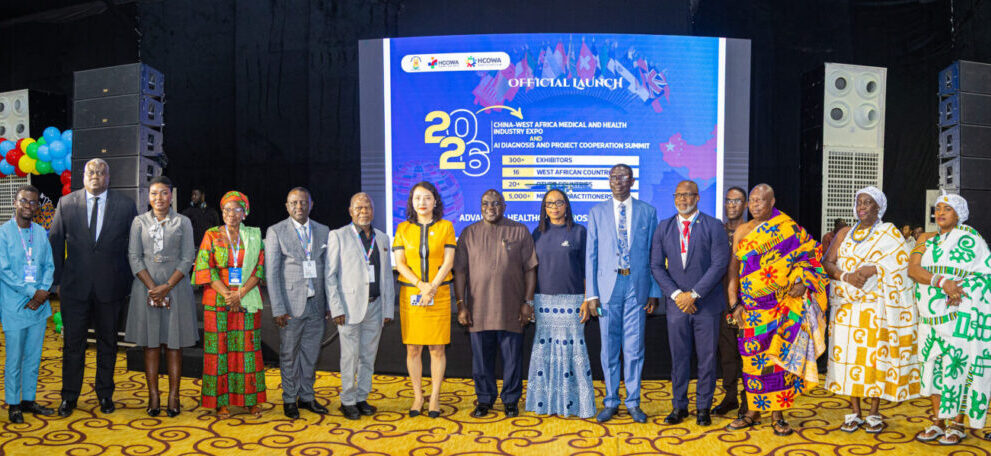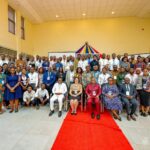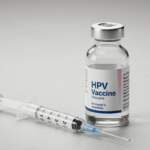The Grand Arena of the Accra International Conference Centre was transformed into a vibrant nexus of diplomacy, innovation, and healthcare advancement when regional leaders, dignitaries, and global experts gathered for the 2025 China–West Africa Medical and Health Industry Expo & AI Diagnosis and Project Cooperation Summit. Held from August 20 to 22, the three-day event was organized by the Health Community of West Africa Association in partnership with the Ghana Health Service, and conducted under the auspices of Ghana’s Ministry of Health and Ministry of Trade and Industry.
Against the theme “Focusing on Supply-Demand Cooperation to Promote the Integrated Development of the China-Africa Health Industry,” participants explored pathways to deepen Sino-African collaboration in medical research, technology transfer, and local production of essential health commodities.
Opening the summit on behalf of President John Dramani Mahama, Chief of Staff Hon. Julius Debrah delivered a presidential address that reaffirmed Ghana’s strategic vision of healthcare as an engine of national development and regional growth. Hon. Debrah emphasized that Ghana no longer views health merely as a social service but as a

critical pillar of economic empowerment and industrialization. His remarks set a resolute tone, indicating the government’s commitment to leveraging public-private partnerships and international collaboration to elevate West Africa’s medical infrastructure and enhance resilience against future health emergencies.
The high-level roster of attendees illustrated the summit’s geopolitical significance. Prof. Grace Ayensu Danquah, Ghana’s Deputy Minister of Health; H.E. Tong Defa, Chinese Ambassador to Ghana; Hon. Fatou Mbaye Sylla, Director General at Senegal’s Ministry of Health; Prof. Mustapha Midjiyawa, Togo’s Minister of Health; and Madam Jiang Sihong, President of the HCOWA Association, joined forces in dialogue that bridged national boundaries. Their presence signaled a shared political will to dismantle trade barriers, harmonize regulatory frameworks, and synchronize health-industry strategies across the West African subregion and China.
In her keynote address, Madam Jiang Sihong captured the spirit of collective enterprise, declaring, “This Expo marks not just a gathering, but a movement to transform healthcare in West Africa through innovation, technology, and collaboration. About 300 manufacturers from China are preparing to set up plants here in Ghana. This means jobs, industrial growth, and reduced dependence on imports. We are working closely with the Ministry of Trade and Industry to make this a reality.” Her remarks highlighted concrete plans for Chinese investors to establish pharmaceutical and medical-equipment facilities on Ghanaian soil, a move poised to stimulate job creation and advance health sovereignty in the region.



Beyond the exhibition of cutting-edge medical devices and AI-driven diagnostic platforms, the summit convened policy forums on supply-chain integration, quality assurance, and financing mechanisms for scaled-up local production. Delegates debated strategies for attracting long-term investment, aligning manufacturing incentives with public health priorities, and ensuring that domestic output meets both regional demand and global standards. This policy-driven dialogue underscored the interconnected nature of health security, economic diversification, and industrial policy within the broader framework of Africa’s Agenda 2063 vision for inclusive growth.
The expo floor itself showcased a panorama of innovation, from AI-enhanced radiography systems capable of rapid tuberculosis screening to smart cold-chain solutions designed to safeguard vaccine integrity in remote areas. Chinese manufacturers exhibited modular factory designs and turnkey production lines tailored for local adaptation, while Ghanaian research institutions displayed pilot-scale biomanufacturing prototypes. These demonstrations not only boasted of technological ambition but also invited hands-on exchanges between engineers, clinicians, and regulatory experts committed to co-creating fit-for-purpose solutions.
For Ghana’s private-sector participants, the summit offered an unprecedented window into China’s medical supply ecosystem. Hospital directors, pharmaceutical entrepreneurs, and health-tech start-ups engaged in matchmaking sessions with Chinese firms, exploring joint-venture models and technology-licensing agreements. Observers noted a palpable shift in mindset: stakeholders arrived eager to move beyond donor-driven paradigms toward self-sustaining business models that integrate value-chain ownership with positive health outcomes.


By reducing dependency on imported medical devices and consumables, West African health systems could lower costs, shorten procurement cycles, and reinvest savings into underserved communities. Moreover, local manufacturing was presented as a lever for industrial diversification, generating skilled employment and fostering downstream industries in packaging, logistics, and quality control.
As the 2025 China–West Africa Medical and Health Industry Expo drew to a close, all parties reaffirmed their commitment to transforming collaborative intentions into measurable progress. Plans were announced for follow-up working groups to refine regulatory roadmaps, secure financing for initial factory build-outs, and launch pilot-deployment projects in regional referral hospitals. With clear political backing and robust stakeholder engagement, the summit left behind a strategic blueprint for advancing integrated healthcare development—one that binds together supply-demand cooperation, industrial growth, and health equity across West Africa and China.
By convening at the intersection of health and industry, regional leaders and global experts signaled a decisive shift from fragmented engagement to systematic partnership. As Ghana positions itself as a subregional medical hub, the lessons of the 2025 Expo illuminate a pathway toward affordable, locally produced health technologies—and toward a future in which collaborative innovation becomes the cornerstone of Africa’s health sovereignty and economic prosperity.



